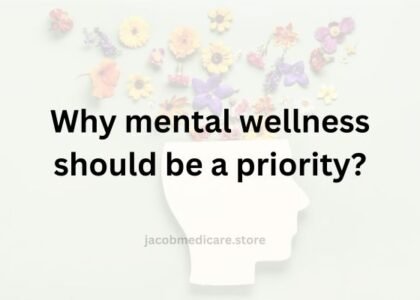Anxiety, stress, and sleeplessness are common problems that occur in today’s fast pace life. These issues seem not to be related to one another, but they often develop vicious cycles that can affect someone mentally as well as physically. The good thing is that all three conditions are manageable, and it’s easy to create a more balanced life by overcoming them. With a holistic approach, anxiety is reduced, stress is relieved, and sleep quality is improved. In this blog, we’re going to discuss how these can be managed together so that long-lasting change can take place for a healthier and more balanced life.
Understanding How Anxiety, Stress, and Insomnia Relate

Anxiety, stress, and insomnia seem to feed on each other as they cannot seem to break free from the cycle. Here’s how they relate:
An anxiety situation would be when your head starts racing, and in turn, your body is quite tense and alert all time. This makes it uneasy to relax both mentally as well as physically, further affecting the sleep.
Stress: Continuous stress causes the production of such hormones as cortisol, or known as the “stress hormone.” This can hinder proper body rest to fall asleep or not even be able to sleep.
Insomnia: Sleep deprivation, from anxiety or stress, will increase your vulnerability to both. Poor sleep exacerbates the feelings of anxiety and stress, thus leaving you trapped in a cycle of sleeplessness.
Knowledge of this relationship is the first step in managing these issues together. With the right strategies, you can break the cycle and regain control over your well-being.
Step 1: Identify Your Triggers
The first step in the management of anxiety, stress, and insomnia is to determine what may be causing them. Some experience these triggers as external—pressure at work, family matters, or financial problems. Others may have internal triggers like negative thought patterns or unresolved emotions.
Take some time to reflect on what causes you to feel anxious or stressed during the day and what keeps you up at night. Once you recognize your triggers, you can take proactive steps to address them directly.
Step 2: Adopt Stress-Reducing Techniques
This aspect includes stress management as a central activity to building a balanced life. Chronic stress impacts more than your emotional state; it leads to poor sleep and further causes anxiety. Here are some techniques that are successful for stress relief:
1.Exercise: This is one of the best ways to fight stress. It releases endorphins, the body’s natural mood booster, and improves sleep quality. A minimum of 30 minutes of moderate exercise most days of the week is good.
2.Mindfulness and Meditation: Such practices as mindfulness and meditation can help quiet the mind, calm racing thoughts, and create relaxation. In fact, even 10-15 minutes of meditation a day can significantly reduce stress levels.
3.Breathing Exercises: Deep breathing exercises, such as diaphragmatic breathing, stimulate the body’s relaxation response, reducing stress and anxiety. Try inhaling for 4 counts, holding for 4 counts, and exhaling for 4 counts.
4.Time Management: Many times, stress results from being overwhelmed with tasks and deadlines. Try to prioritize your activities and break them into smaller, more manageable chunks. Setting realistic expectations and practicing saying “no” when necessary can help reduce the feeling of being overburdened.
Step 3: Manage Anxiety with Healthy Coping Strategies
Anxiety can amplify both stress and insomnia, but there are several ways to manage it effectively:
1.Cognitive Behavioral Therapy (CBT): CBT is a very effective therapy for treating anxiety. It is based on the idea of identifying and challenging negative thought patterns and replacing them with more positive, realistic ones. You can do this with the help of a therapist or through self-help books.
2.Journaling: Writing out thoughts and feelings can help you process your anxiety, clearing mental clutter. Keeping a journal of your daily experience, your worries, or your achievements can be an avenue to let out emotions that allow you to gain insight from it.
3.Social Support: There is no better way to reduce a sense of isolation than talking through this anxiety with friends, family, or a support group. Knowing that others understand may ease your feelings of distress at an incredibly significant level.
4.Limiting Stimulants: Caffeine, nicotine, and other stimulants can increase anxiety. Avoid them when it’s close to bedtime as this will interfere with sleep patterns.
Step 4: Sleep Hygiene to Enhance Rest
Quality sleep is one of the pillars of managing both anxiety and stress. When sleep-deprived, the body and the mind are not as capable of handling stressors, and even anxiety becomes much harder to keep in check. Here are some of the sleep hygiene practices to enhance the quality of your rest:
1.Set a Consistent Sleep Schedule: Go to bed and wake up at the same time every day, even on weekends. This will help your body regulate its internal clock and sleep more soundly.
2.Create a Bedtime Routine: A calming presleep routine tells your brain it is time to wind down. Reading, taking a warm bath, or practicing relaxation techniques can help you shift away from the stresses of the day into a restful night.
3.Limit Screen Time: The blue light from phones, tablets, and computers interfere with the production of melatonin. This hormone regulates sleep. Try to avoid screens at least an hour before bedtime.
4.Make Your Sleep Environment Comfortable: Your bedroom should be a sleep sanctuary. Keep the room cool, dark, and quiet. Invest in a comfortable mattress and pillows to ensure a restful night.
5.Avoid Heavy Meals and Alcohol: Consuming large meals or alcohol near bedtime can disrupt sleep. For a light snack if you feel hungry before bed, avoid alcohol as it can interfere with the deep stages of sleep.
Step 5: Practice Self-Care and Mindfulness
Creating a balance in life also includes looking after your overall well-being. Engage in daily self-care practices that nourish your body and mind. Whether you’re doing something you love, spending time with loved ones, or practicing gratitude, all these help you unwind and reduce the negative effects of stress and anxiety.
Mindfulness practices can include anything from yoga or tai chi. These practices stop the chattering in one’s head that creates anxiety and, by and large, make an individual relaxed both physically and emotionally.
Final Thoughts
It need not be a really huge affair to manage the three enemies: anxiety, stress, and insomnia. You can break the cycle and improve your mental, emotional, and physical health by taking a balanced approach that includes stress reduction, healthy coping mechanisms for anxiety, improved sleep hygiene, and overall self-care. Remember that progress takes time, so be patient with yourself as you incorporate these practices into your routine. Small changes can lead to lasting improvements, helping you create a life that’s balanced, calm, and restful.






















